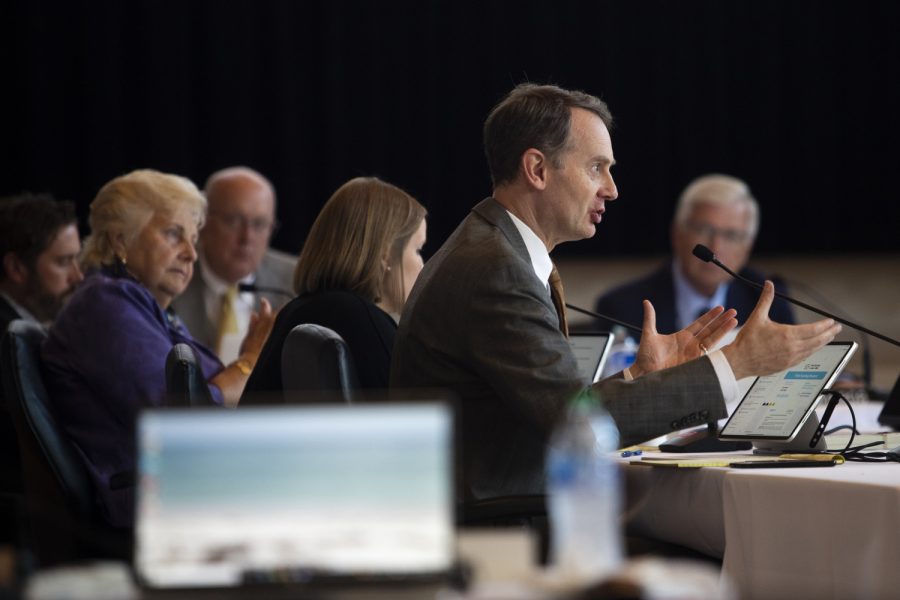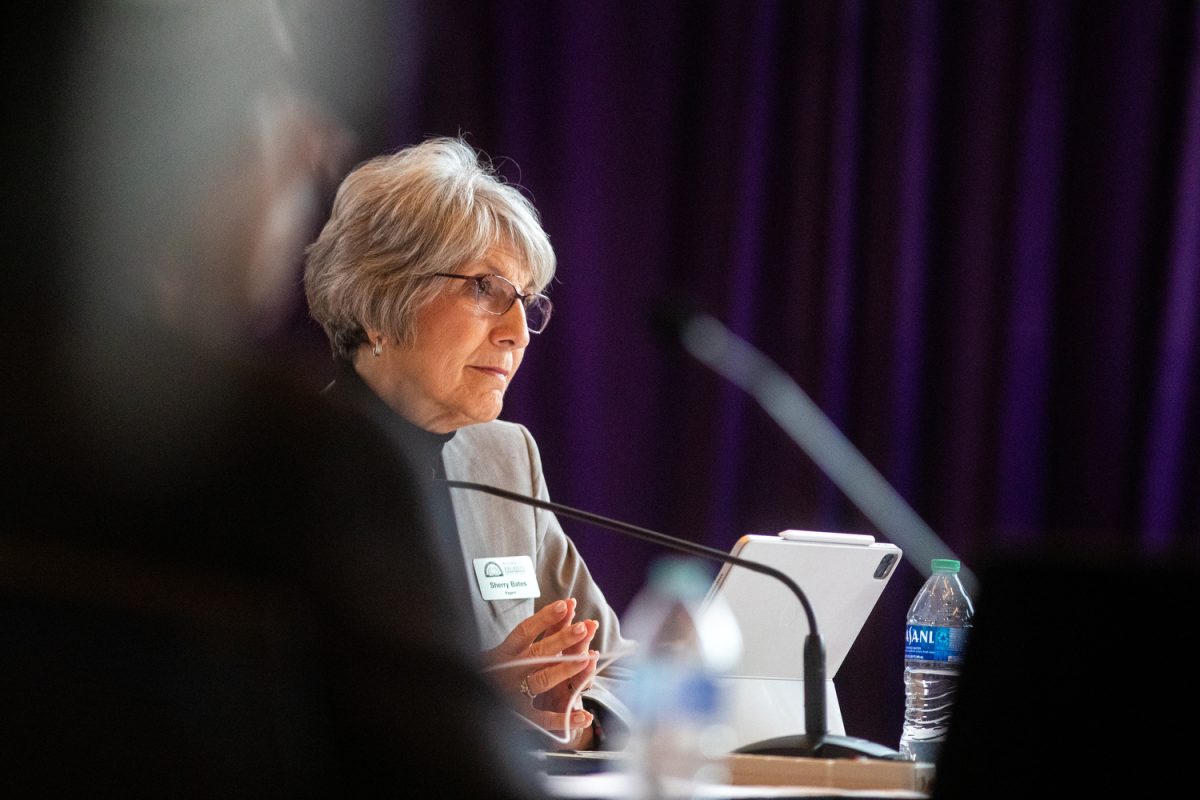Professors placed on paid leave and convicted of criminal charges may soon be forced to pay back their salaries.
The House Education Committee unanimously approved Monday House File 139, which would require faculty members of regent institutions and community colleges convicted of crimes to repay all salary accrued during paid leave. The bill will now go to the full House.
This bill, sponsored by Rep. Jeff Kaufmann, R-Wilton, would not apply to faculty who do not receive taxpayer dollars, such as UI Professor Gary Hunninghake, who was placed on paid leave while University of Iowa police investigated him for child pornography.
The case closed late last year with no charges filed, but Hunninghake remains on paid leave with an annual salary of $360,000 while the university is “taking action” against him. Hunninghake’s salary comes from the University of Iowa Physicians, made up of faculty who teach at the UI Carver College of Medicine, which is funded with clinical revenue.
Kaufmann said he wouldn’t be opposed to amending the bill to cover a wider range of faculty that would include cases such as Hunninghake’s.
“I would have no hesitation about applying this [bill] to anyone involved with programs or jobs that are taxpayer-funded,” Kaufmann said. “If the hospital itself is taking taxpayer dollars, I don’t know that it really matters what pool of money [the paid leave] is coming from.”
He said he and other legislators drew up the bill to deal primarily with the “unjust” amount of the time they felt the UI took to terminate or reach an agreement with Associate Professor Toshiki Itoh, who was convicted in October 2010 of two counts of assault with intent to cause bodily injury. He had an annual salary of $93,000.
One charge remains pending from the 2008 incident, but Itoh has since reached an agreement with the UI, and he formally resigned from his position Feb. 23.
While the university has taken some criticism for the amount of time it takes for officials to take formal action on employees placed on leave, UI spokesman Tom Moore said the process is meant to be thorough, which can take time.
The process of revoking tenure can be especially, and deliberately, lengthy, he said. This can include asking the person to resign, entering into mediation, holding a hearing, or a potential appeal process that can go up as high as the state Board of Regents.
“Tenure is an essential element of academic freedom, and revoking it is a matter that requires a careful, thorough, and thoughtful review,” Moore wrote in an e-mail.
Regent Robert Downer said while he does not yet know the specifics of the bill, he supports the principle behind it.
“When there has been a conviction … [those on paid leave] have to be established to have committed these offenses beyond a reasonable doubt,” he said. “And I don’t see any reason why people who have been convicted of something of that nature should be a burden to the taxpayers or other payers of funds to the universities.”
Although the regents have not formally discussed changing the current paid-leave policies or disciplinary process, Downer said he thinks the current system is worth studying and suggested putting a cap on the amount of time an employee could remain on paid leave.
“I have great concern over the way the policy is now,” he said. “A faculty member has strong incentives to try to drag this out because payment continues.”He believes the university should be in a place to complete the Hunninghake situation, though some legislators said they understood the pace of progress during the paid leave.
“It takes time to do an investigation, it really does,” Sen. Bob Dvorsky, D-Coralville, said.
Kaufmann said he’s confident his bill is going to pass the House, and he hopes it will make it through the Senate.
“Laws are also used to send a message, and I think this bill is going to send a huge message to any faculty members and employees and at universities and community colleges,” Kaufmann said.
UI Associate Provost for Faculty Tom Rice, who oversees the paid-leave process for faculty, did not return calls seeking comment about possible revisions to the university’s paid-leave policy.






